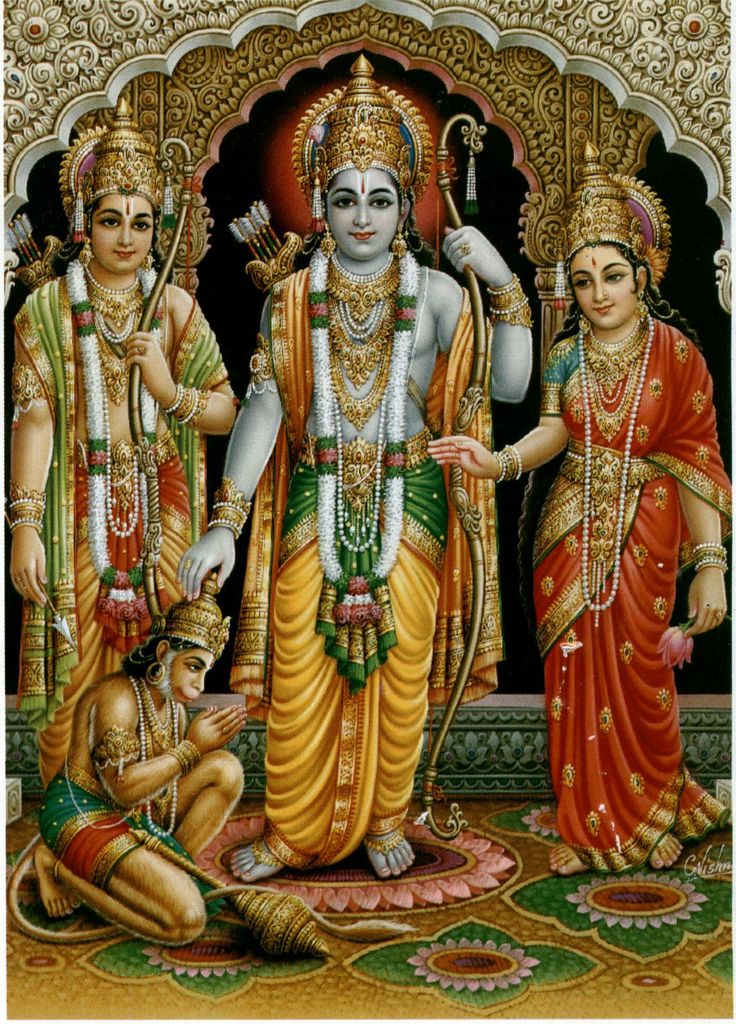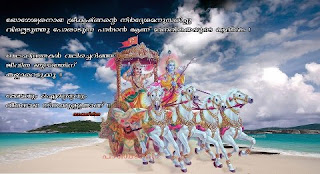The Difficulties of the Spiritual Seeker : 11.
The Teachings of Bhagavadgita :
Subjectively, we are individuals looking at the world. We – not merely humans, everything that is capable of visualising the world as an external something – is a subject, even if it be subhuman or even superhuman. As this cosmical outward world is constituted in this manner described, the individual also is constituted in some way. The physical body of organic as well as inorganic beings is made up of the same five elements - earth, water, fire, air, and ether. But inside the body there are other things, deeper layers, internal and more pervasive, more ethereal – like electric energy you may say – than the physical body outside. We have the pranas inside. A prana is a vibratory motion of an energy which sustains us, and due to which we feel strength in our system. Internal to the pranas is the mind, which thinks. The senses – hearing, seeing, etc. – are intermediary operations between the prana and the mind. They are connecting links between the prana and the mind; they can be associated with the prana or associated with the mind as you like, or perhaps both. But internal to the mind is understanding or the intellect, the reason which does not merely think in an indeterminate manner but determinately decides, judges, understands, and comes to a conclusion; that is reason – intellect. These layers mentioned are called, in Sanskrit, the koshas. Kosha means a cover, an investiture, an encasement. The physical body is called annamaya kosha because it is actually made up of the stuff of food that is taken inside. The pranas are called the pranamaya kosha. Internally we have got the manomaya kosha or the mind, then the vijnanamaya kosha or the intellect. Then there is a fifth one which is a causal condition, you call sometimes the unconscious level in psychology. It is something more than what you call the unconscious in ordinary psychology – it is the repository of all the conditions necessary for further reincarnations, into which you descend in deep sleep. Beyond that is the Atman, the pure spirit which is illuminating everything, whose reflection it is that is enabling the intellect to understand. So this is the subjective side, we may say – the subjective world.
The operation of this subjective world through the instrument of the mind, the intellect, and the senses, in contact with the objective world described, is what we call human experience as far as we are concerned. All of our experiences, desirable or undesirable, are the outcome of a peculiar coming in contact of the subjective world with the objective world. The reason behind this contact, and the nature of this contact was not clear to the mind of Arjuna, and is not clear to the mind of any one of us. This knowledge is called samkhya – right understanding.
Next : 2. Samkhya – Right Understanding :
Swami Krishnananda
To be continued ..

.jpg)


Comments
Post a Comment